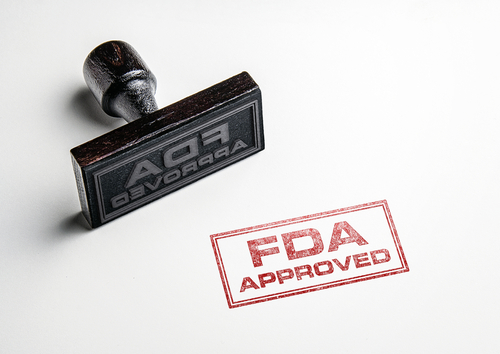The U.S. Food and Drug Administration (FDA) has extended the use of Genentech‘s Kadcyla (ado-trastuzumab emtansine) as an adjuvant (post-surgery) treatment for some patients with HER2-positive, early-stage breast cancer, the company announced.
Specifically, the FDA’s approval is for patients who had residual disease after their pre-surgery treatment, which included a taxane and Herceptin (trastuzumab).
This label extension was reviewed under the FDA’s real-time oncology review and assessment aid pilot programs, meant to explore a more efficient review process that brings safe and effective treatments to patients more quickly.
“This approval is a significant treatment advance for HER2-positive early breast cancer. By working closely with the FDA and participating in the Real-Time Oncology Review pilot program, we are able to make Kadcyla available for people with residual invasive disease after neoadjuvant therapy much sooner than anticipated,” Sandra Horning, MD, said in a press release. Horning is chief medical officer and head of Global Product Development at Genentech.
Aiming to provide early breast cancer patients the best chance for a cure, patients often are treated with chemotherapy both before and after their breast cancer surgery. The first chemotherapy regimen aims to shrink tumors, improving surgical outcomes, while the second aims to eliminate the remaining cancer cells and reduce the risk of the cancer returning.
“With every step forward in reducing the risk of disease recurrence, we come closer to the goal of helping each person with early breast cancer have the greatest opportunity for cure,” Horning said.
Kadcyla is an antibody-drug conjugate that uses the trastuzumab antibody (the active ingredient in Herceptin) to deliver a cytotoxic agent to cancer cells. Unlike chemotherapy, Kadcyla delivers the toxic agent directly into HER2-positive cancer cells, limiting damage to healthy tissues and serious side effects.
Kadcyla’s recent approval was based on findings from the ongoing Phase 3 KATERINE (NCT01772472), in which Kadcyla cut the risk of invasive disease or death in half, compared with Herceptin.
KATHERINE enrolled 1,486 HER2-positive, early-stage breast cancer patients found to have residual cancer cells — detected in the breast or axilla during surgery — after receiving treatment with taxane-based chemotherapy and Herceptin.
Patients were randomized to Kadcyla or Herceptin, delivered into the blood every three weeks for 14 cycles.
In addition to meeting the primary goal of invasive disease-free survival — defined as the time without breast cancer recurrence or death from any cause — Kadcyla also lowered the risk of metastatic disease or death by 40%. Indeed, after a median follow-up of 41.4 months, 10.5% of patients on Kadcyla had died or seen their disease spread, compared with 15.9% for those on Herceptin.
Kadcyla’s safety profile was similar to that seen in other trials, with the most common serious adverse side effects, including low platelet counts, high blood pressure, and radiation-induced skin injury.
Kadcyla also is approved for breast cancer patients with metastatic disease after unsuccessful treatment with Herceptin and a taxane.

